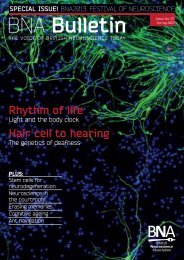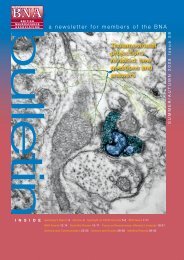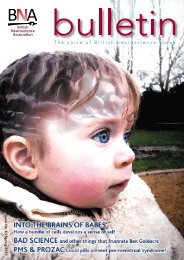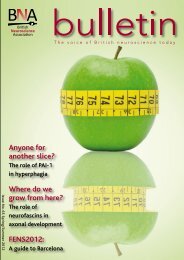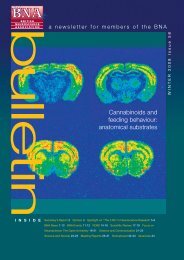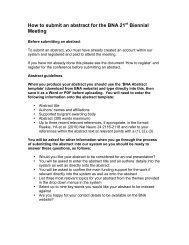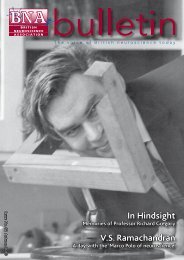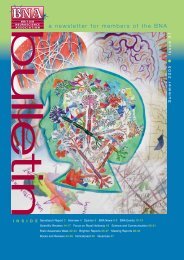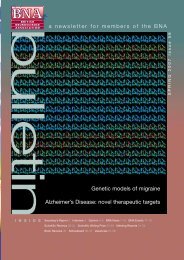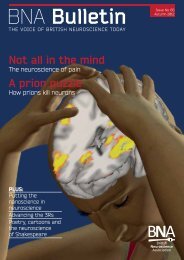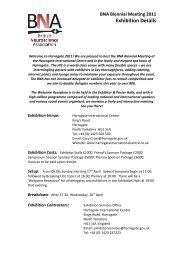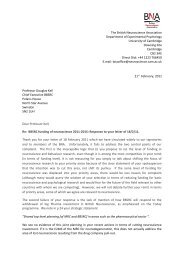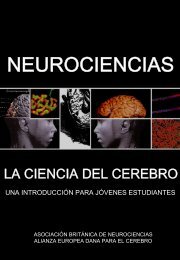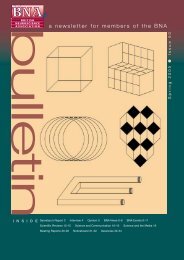Book of abstracts - British Neuroscience Association
Book of abstracts - British Neuroscience Association
Book of abstracts - British Neuroscience Association
You also want an ePaper? Increase the reach of your titles
YUMPU automatically turns print PDFs into web optimized ePapers that Google loves.
11.08<br />
Chloride intracellular channel 1 (clic1) plays a central role in<br />
regulating free radical generation by microglia in response to<br />
Beta-amyloid<br />
Milton R H, Abeti R, Duchen M R, Mazzanti M<br />
Deaprtment <strong>of</strong> Phsyiology, University College London, , Gower Street,<br />
WC1E 6BT, , Dipartimento di Scienze Biomolecolari e Biotecnologie,<br />
Universita` degli Studi di Milano, Via Celoria 26, 20133 Milano, Italy,<br />
β-Amyloid (Aβ) peptides accumulate in the brain in Alzheimer’s<br />
Disease (AD) and are implicated in its pathogenesis. Microglia, the<br />
immune cells <strong>of</strong> the CNS, are activated by Aβ and in response,<br />
produce reactive oxygen species (ROS) through activation <strong>of</strong> the<br />
plasmalemmal NADPH oxidase. Generation <strong>of</strong> ROS by microglia is<br />
thought to contribute to the cell death seen in AD. We have previously<br />
shown that Aβ activates a chloride current mediated by the protein<br />
CLIC1 (Novarino et al, 2004). We now show that Aβ-induced<br />
microglial ROS production is contingent upon the channel activity <strong>of</strong><br />
CLIC1. Rates <strong>of</strong> ROS generation were measured using hydroethidium<br />
fluorescence from BV2 and primary microglial cells. Suppression <strong>of</strong><br />
CLIC1 protein expression using siRNA, inhibition <strong>of</strong> the CLIC1 chloride<br />
current using IAA-94 or using an antibody to the channel protein, and<br />
replacement <strong>of</strong> extracellular Cl- with impermeant anions, all<br />
significantly reduced the ROS response to Aβ (p



